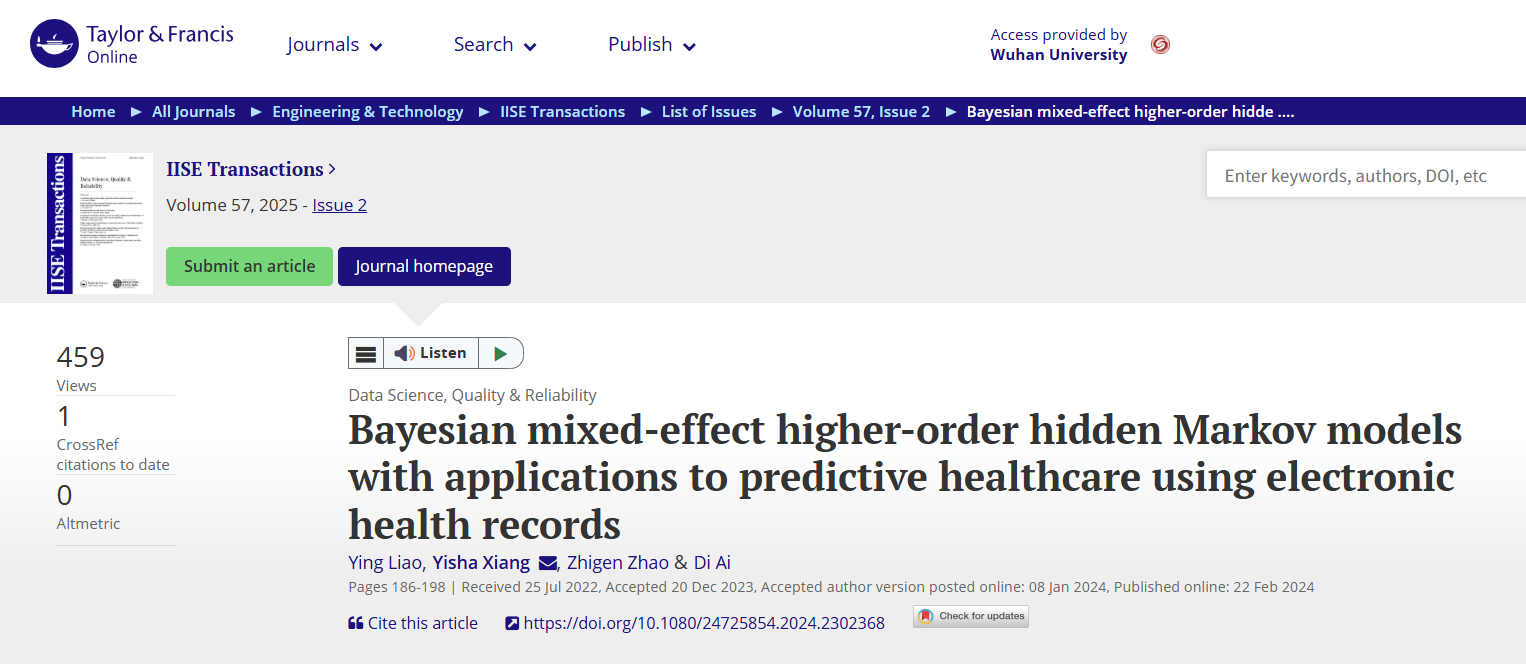Researchers developed an advanced statistical model to better predict patient health outcomes using electronic medical records. The new approach addresses key challenges in analyzing disease progression patterns that vary between patients and depend on complex historical health states.
The Bayesian Mixed-Effect Higher-Order Hidden Markov Model (MHOHMM) captures how future health conditions relate to both current and past medical states while accounting for individual differences in factors like age and gender. The team created an efficient two-stage algorithm for model implementation and validation.
In practical testing, the model successfully predicted critical blood pressure drops in intensive care unit patients. This demonstrates its potential for early warning systems and personalized treatment planning. The flexible framework can adapt to various types of electronic health record data and medical conditions.
Published in IISE Transactions (ranked as A-level in Wuhan University's journal system), this research represents significant progress in medical predictive analytics. The model's ability to handle complex patient data patterns could lead to improved clinical decision-making and better patient outcomes.
Full study: https://www.tandfonline.com/doi/abs/10.1080/24725854.2024.2302368

 Faculty and Staff
Faculty and Staff Academics
Academics International Exchange
International Exchange







